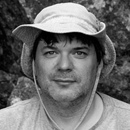Academic Editors
The following people constitute the Editorial Board of Academic Editors for PeerJ. These active academics are the Editors who seek peer reviewers, evaluate their responses, and make editorial decisions on each submission to the journal. Learn more about becoming an Editor.

Louise Willemen
Department of Natural Resources, Faculty of Geo-Information and Earth Observation, of University of Twente, the Netherlands.PhD in spatial modelling from Wageningen University, the Netherlands.Worked before @ Bioversity International in Colombia, the European Commission’s Joint Research Centre in Italy, Cornell University in the USA.Current roles: Coordinating Lead Author of the Land Degradation and Restoration assessment of IPBES, Chair of the Steering Committee of Ecosystem Services Partnership, and editorial work for several journals. Ecosystem services and rural development researcher. Current research includes RS-based ecosystem service mapping and monitoring, impact assessments of integrated restoration, and prioritization of investments in land degradation neutrality actions.

John Leicester Williams
John Leicester Williams, Professor of Biomedical Engineering, University of Memphis, Memphis, Tennessee. Research interests include: biomechanical engineering, mechanobiology of growth plate cartilage, orthopaedic biomechanics, biomechanics of total joint replacements and of oral implants, knee joint kinematics and kinetics, mechanical properties of bone and cartilage. Academic Editor of PLoS ONE.

Darren W Williams
Group Leader and Reader at King's College London. My research focuses on the mechanisms that control the assembly of neural networks. I have explored how network components are generated from distinct neural precursors, how axons and dendrites are guided to their targets and the way dendrites undergo large-scale pruning. Although my lab uses Drosophila, my experience with zebrafish and teaching human neuroanatomy to medical students broadly influences the questions I ask.

Matthew D Wilson
Matthew (Matt) Wilson is a Professor in Spatial Information and Director of the Geospatial Research Institute Toi Hangarau at the University of Canterbury in Christchurch, New Zealand. He is a surface water hydrologist and geographical information scientist with specialisations including flood risk, surface water dynamics, water resources, remote sensing, numerical model development, uncertainty analysis and the assessment of the potential impacts of climate change. Previous research has included the assessment of the potential impacts of climate change on flood risk and water resources in the Caribbean and the analysis of surface water hydrodynamics on a 300 km reach of the Amazon River in Brazil. In New Zealand, his current research includes leading the uncertainty theme for a national scale flood risk assessment, the creation of a digital twin for flood resilience, and the creation of algorithms for processing of novel airborne GNSS reflectometry measurements for estimation of soil water content.

Michael Wink
Prof. Dr. Michael Wink is Professor of Biology and Director at the Institute of Pharmacy and Molecular Biotechnology of Heidelberg University; Head of Biology Department (1989-2019). Senior professor since 2019. Editor of Diversity, Biotechnology Journal and Journal of Ornithology. Member of several editorial boards and scientific societies. Author of over 20 books and over 900 original peer-reviewed publications.

Robert Winkler
Robert Winkler is Principal Investigator of the Laboratory of Biochemical and Instrumental Analysis at the CINVESTAV Unidad Irapuato and faculty member for the postgraduate programs Plant Biotechnology and Integrative Biology. His research topics include novel mass spectrometry techniques such as low-temperature plasma ionization and covalent protein staining, new approaches in the high-throughput metabolomic profiling of plants, computational mass spectrometry and proteomics.

Anita E Wluka
Anita is an Associate Professor in the School of Public Health and Preventive Medicine, Monash University, and a Clinical Rheumatologist, Alfred Hospital, Melbourne.
Recognised as a world-leader in osteoarthritis research, Anita is based at The Alfred hospital where she combines research with clinical practice as a physician. Her work has contributed to guidelines for managing hip and knee osteoarthritis developed through the Royal Australasian College of General Practitioners National Health and Medical Research Council.

Dominik Wodarz
Dominik Wodarz is Professor in the Department of Ecology and Evolutionary Biology at University of California, Irvine. The subject area of his research is theoretical / mathematical biology, with emphasis on infectious disease, the immune system, cancer, and evolutionary dynamics. His studied Biology at Imperial College, London, and obtained his PhD from the University of Oxford.

Małgorzata Wójcik
I am a physiotherapist with 26 years of experience (I am a therapist specialising in the following methods: NDT-Bobath, PNF, Cyriax, musculo-fascial relaxation) and DO osteopath (including pediatric osteopath).
I have a PhD degree and have published scientific articles in peer-reviewed scientific journals. I focus on physiotherapy for children and adults with musculoskeletal disorders.I also work with women with endometriosis or prolapse of the reproductive organs.

Yuri I. Wolf
Lead Scientist, Koonin Group at the Computational Biology Branch, National Center for Biotechnology Information, National Library of Medicine, National Institutes of Health (Bethesda, Maryland).

Stephan E Wolf
Dr. Stephan E. Wolf received his doctoral degree (Dr. rer. nat.) in inorganic chemistry from Johannes-Gutenberg University Mainz, Germany (2009). In 2020, after accomplishing a junior professorship, he received his Venia legendi (Priv.-Doz.) from Friedrich-Alexander University Erlangen-Nürnberg (FAU, Germany).
He holds a Heisenberg Fellowship granted by the German Research Foundation and leads a research group on bioinorganic and bioinspired materials chemistry at the Department of Materials Science of FAU. His research revolves around the biosynthesis and process-structure-property relationships of biological materials, the underlying physicochemical intricacies of phase separation, and the translative adaptation of these concepts towards novel approaches in bioinorganic solid-state chemistry.

Joshua Wolf
Dr. Joshua Wolf, PhD, MBBS is an associate faculty member and clinical investigator at St. Jude Children's Research Hospital within the Department of Infectious Diseases.
His research interests include; Prediction, Prevention and Treatment of Infections in Immunocompromised Children, and the Management of Device-Associated Infections.

